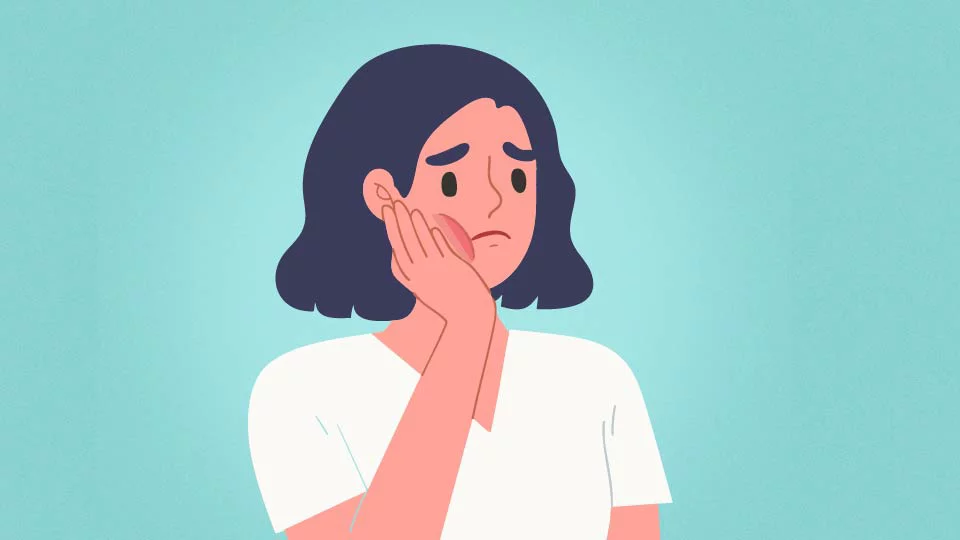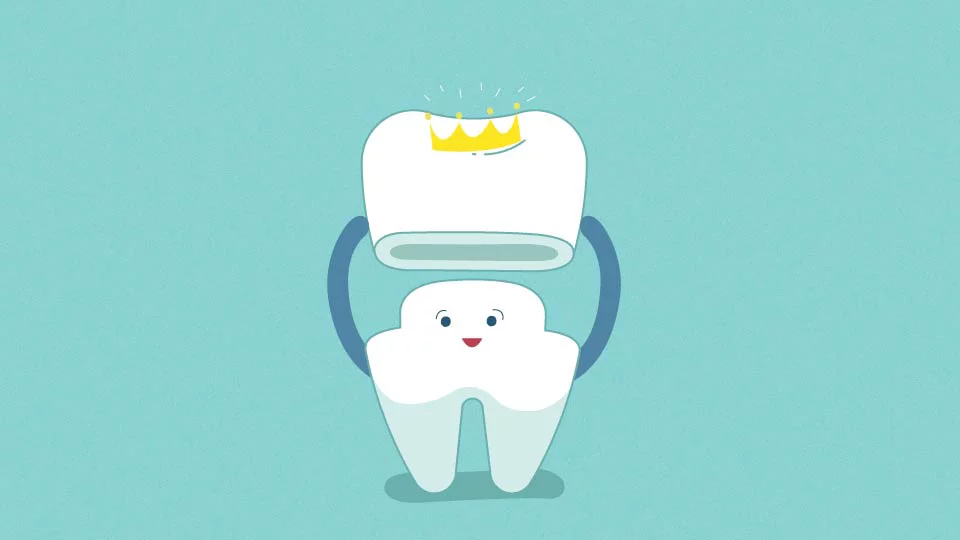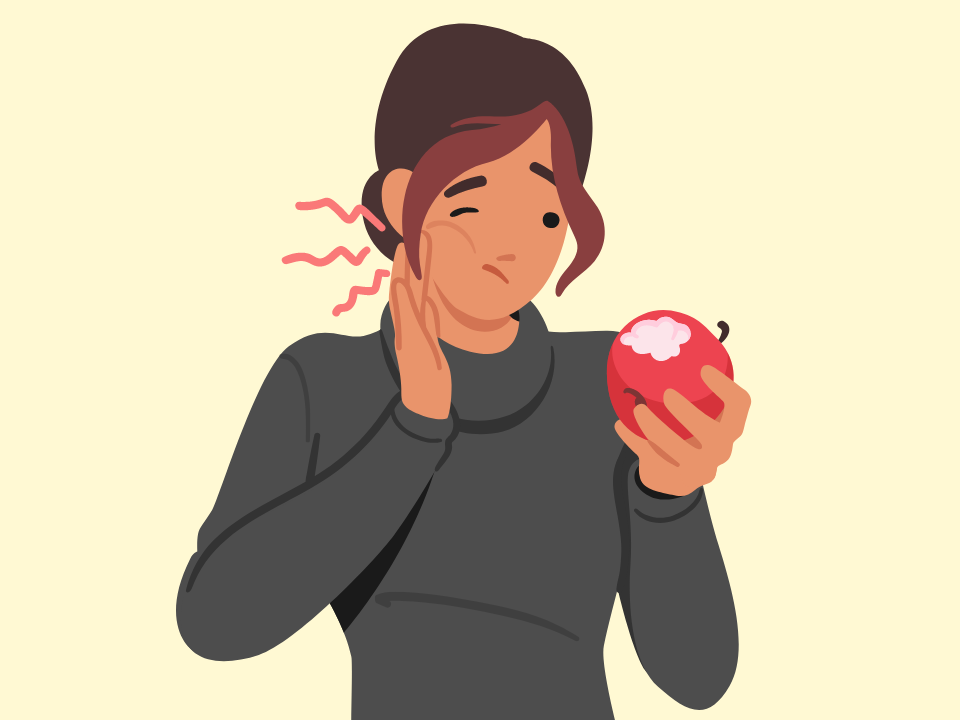Knowing a thing or two about the tooth's structure is important to understanding how a dental crown works. Several protective layers surround the pulp at the center of the tooth, which is the nerve. For a cavity to develop, it must first get through the strong outer layer of the tooth, called the enamel. When tooth decay erodes the enamel that affects a surface area layer, a dentist will fit a dental crown over the tooth, which will help stabilize the tooth.
A dental crown is a tooth-shaped cap made of porcelain, metal, or zirconia, that completely covers the tooth.
But when the crown becomes loose and falls out, knowing what to do will help you act quickly to reduce the possibility of developing further damage or pain. While it can be concerning to have any dental restoration fall out of your mouth, this common problem is fixed by your dentist. Several reasons can cause a crown to fall out prematurely.
Understanding Why Permanent Crowns Fall Out
Permanent crowns should last several years. In fact, dental crowns have a 75% to 96% success rate over 10 years,[1] depending on the crown's material. The dental crown fits snuggly over the prepared tooth. Unlike a dental filling, a crown is constructed outside of the mouth and then cemented on the border of the tooth.
Common Causes of Crown Dislodgement
Any changes in the tooth or restoration could dislodge the crown. Once it is loose, the act of chewing or the presence of food particles exacerbates the problem until it eventually completely detaches. A few reasons why a permanent crown may fall out include:
Tooth Decay
Dental crowns are designed to keep out bacteria and food debris. But tooth decay can still occur along the margins of the crown in some cases. As the tooth changes shape from erosion, the crown no longer stays intact.
Mouth Trauma
Like when a tooth gets knocked out, injury to your mouth, face, or jaw can cause a dental crown to come out.
Dental Cement Erosion
Your dentist uses dental cement to adhere the crown to your tooth. Chewing pressure and liquids in the mouth can wear away the cement overtime, causing the crown to become loose.
Eating Sticky Foods
Any foods that are so sticky that it is difficult to pull your teeth apart can also pull the crown off your tooth. Hard candies, caramel, and taffy should be avoided.
Grinding Your Teeth
Bruxism, or teeth grinding, is a pervasive problem. In 2021, an American Dental Association survey showed that 70% of dentists noticed signs of bruxism in their patients.[2] If your other teeth show evidence of grinding, your dentist may recommend a mouth guard to protect your teeth from damage and keep your crown from being compromised.
Immediate Steps to Take When Your Crown Falls Out
Knowing what to do if your crown falls out helps you act quickly. Waiting to address a missing crown could make the problem more painful and cause more damage. If you notice that your permanent crown is lose, contact your dentist immediately.
Rinsing the Mouth and Handling the Crown
You won't always recognize that your crown has become loose until it completely dislodges from your tooth. For what to do when your crown falls out, follow the steps below:
Find your crown and safely store it. Unless the crown itself is broken or damaged, your dentist might be able to reuse it.
Gently rinse your mouth with warm water to remove any bacteria or debris that may affect the now-exposed tooth.
Avoid touching your tooth. This could introduce more bacteria to the area and could cause pain.
Contacting a Dental Professional
After cleaning the mouth and placing the crown in a safe place, if you still haven’t called your dentist, call them now. Even with no pain present, your tooth is vulnerable to damage. Not only is it essential to have your crown replaced as soon as possible, but your dentist may have specific advice to give you about what to do in the meantime before your appointment.
My Crown Fell Out But It Doesn't Hurt
Lack of pain does not mean you should not address the problem. If you have a busy schedule or dental anxiety, making another appointment with the dentist can feel like an inconvenience. But for the health of your mouth, the crown must be replaced as soon as possible.
Emergency Dental Care Options
If you are in pain, it's important to communicate that with your dentist right away. Dental pain can be overwhelming and steadily increase with time. Seek emergency dental care if over-the-counter pain medication does not cause the pain to subside.

Temporary Solutions and Home Remedies
Because your dentist knows the history of your teeth, they may recommend cementing the crown yourself with an over-the-counter dental temporary cement to reduce the chances of further damage to the tooth until your appointment. Only proceed with this if your dentist recommends it.
While losing a dental crown can be unpleasant, there is no need to panic. Do not use household glue to reattach the crown. Glues have toxic ingredients that affect your health if put in the mouth. Adhesives like superglue are never a good idea to use on the body. In addition to possibly gluing your mouth shut, superglue can damage your tongue and gums as well.
Cementing your crown is only a temporary solution. You want your dentist to be able to easily remove the crown, clean it, and replace it at your next appointment.
Temporary Relief from Discomfort
It may go without saying, but until your dentist fixes your crown, be gentle with the tooth. Whether you are chewing or brushing your teeth, try to avoid the tooth altogether, and remember to rinse the mouth well to keep the area clean.
When a crown falls off, the tooth nerves are exposed, which can increase sensitivity to hot or cold foods and drinks. If you experience pain or discomfort, you can:
Take ibuprofen or acetaminophen.
Apply clove oil to the tooth.
Use mouthwash for sensitive teeth.
My Dental Crown Fell Out
The most important thing to remember if your crown falls out is to stay calm. While dental crowns are built to last, it is not uncommon for a crown to become loose. By protecting your tooth from unnecessary exposure to foods and bacteria and getting in touch with your dentist as soon as possible, you will have a replacement crown in no time. Find a qualified dentist using Smile Generation's Find a Dentist tool.
Find your trusted, local dentist today!
Sources
[1]: The Longevity of Restorations: A Literature Review, South African Dental Journal, Oct 2015, https://www.scielo.org.za/scielo.php?script=sci_arttext&pid=S0011-85162015000900008&lng=en&nrm=iso
[2] Teeth Grinding and Jaw Pain, ADA, May 20, 2024, https://www.mouthhealthy.org/en/all-topics-a-z/teeth-grinding









